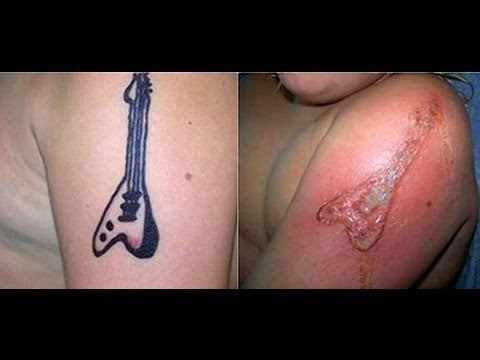What’s the difference between Black Henna and Jagua Gel?
Hello and welcome to our website.
If you’re looking to find out what the differences are between black henna and jagua gel, you’ve come to the right place. Jagua is not necessarily a new product, however, most people still don’t know much about jagua and some even shy away from it for fear that it may be related to black henna. Let me put your mind at ease by saying that it is not. Jagua and black henna are two completely different products that are only related in the fact that they are both used for creating temporary tattoos, but that’s where the similarities end.
So, What is Black Henna?
First let me start by saying that there’s no such a thing as “black henna”. You may have heard this already but it doesn’t hurt to say it one more time, and with good reason, black henna is extremely harmful to the skin and toxic to the body. Jagua gel on the contrary, is 100% natural and safe.
Back in the day when the henna industry was still in its infancy in the U.S., everyone from Gwen Stefani to Madonna were sporting henna tattoos, and why not? Henna tattoos are cool.
A henna tattoo is the closest thing to a real tattoo, they last for several days and you can pretty much draw anything on your skin (depending on your artistic skills), but there is one little problem – popular permanent tattoos are for the most part black, not brown like natural henna tattoos.
It wasn’t long before someone figured out that they could capitalize on the henna trend and thus “black henna” was created.
The main ingredient in black henna is a hair dying chemical called para-phenylenediamine or PPD for short. PPD is an extremely harmful substance that can cause severely burn the skin due to allergic reactions to the chemical. A PPD reaction can leave permanent scarring on the skin and lead to permanent allergies to all hair dying products. There have been report of people being rushed to the emergency room after having received a black henna tattoo.

PPD Black henna is usually sold in a powder form and can easily be mixed with water to create runny paste that is then applied with a tiny brush or a toothpick. It can also be mixed with natural henna paste and then applied on the skin using a cone or henna applicator, but even when mixed with natural henna, the dangers of the substance are still very real with this combination.
How Is Jagua Gel Different From Black Henna?
Jagua Gel is a natural ink made with the extract of the jagua fruit, an edible fruit that grows in rain forests of Central and South America. The jagua fruit is traditionally harvested to be used the preparation for beverages, jams, liqueurs and to eat by itself. It is also believed to have many medicinal properties. You can find out more about jagua on this article.
As opposed to black henna, jagua gel is 100% natural and safe. Not only is the main ingredient in the gel 100% pure jagua juice but the other ingredients are also natural and most of them can be found in many food items.
The average lifespan of a jagua tattoo is 10-14 days, although it can last as long as 3 weeks or as little as one week depending on where it is applied on the body.
The color of a jagua tattoo can vary from a deep black to a milder black with blue undertones, just like the color of a permanent tattoo.
Can you be allergic to jagua gel?
Our Jagua gel is made with 100% natural ingredients, however, allergic reactions to natural products are not uncommon. Some people are allergic to strawberries, carrots, peanuts, soy and other natural products, the same goes for jagua. People can have an allergy to the jagua fruit, but this is extremely uncommon, and even in the event of a reaction it is never like a reaction from black henna. An allergic reaction from jagua is usually a mild redness that typically goes away after a few hours or a couple of days.
How To Tell If It’s Jagua Gel or Black Henna